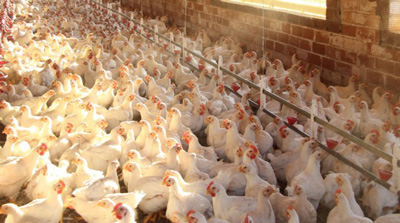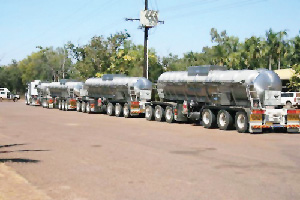
Namibian Chickens are vegetarians, what do imported chickens consume?

By Marne Bouwer
Senior Brand Manager: Namib Mills
Fancy grilling a chicken raised on the remains, or offal, of other chickens? No? Then the only chicken you should buy is Namibian chicken.
The use of animal by-products in animal feed is commonplace in broiler industries around the world. Estimations are that in the United States, 36% of the poultry industry’s animal consumption is by-products. By-products include anything from meat-, bone-, blood- and feather meal, dead animals and animal waste.
Both South Africa and Brazil, suppliers of chicken to Namibia, use animal by-products in their poultry feeds. The use of these products in chicken feed is simply to bring down the costs of production. It is estimated that in the US, using animal by-products decreases the cost per ton of feed by up to 10%.
The abattoir then also has an income from the waste as it is not necessary to safely destroy waste anymore (other chickens will consume this). In defense of this practice, it should be stated that any waste before being reused in animal feed, goes through an intensive heat treatment process generally regarded as sufficient to make it safe for use. The use of animal byproduct in animal feed is a practice which is particularly frowned upon in Europe.
Jaco Labuschagne, the General Manager of Feedmaster confirmed that his company, unlike most of their counterparts in South Africa, does not include any animal by-products in die wide range of cattle, pig, horse or poultry feed they manufacture and distribute in Namibia.
Namib Poultry Industries reiterated that no animal byproducts are used in their feeds, they apply the European norm in this regard. The chickens they produce are vegetarians in the true sense of the word, even to the extent that they do not consume fishmeal which is also widely used in the manufacture of animal feed.
Louis Kleynhans, Farm Manager at Namib Poultry Industries said they have previously decided not to include animal by-products. He said their broiler industry is still young and will chart its own course, not blindly following what South Africa is doing, which has an industry 75 times greater than Namibia.
According to Wallie Roux, an independent agricultural expert, Feedmaster complies with the best standards in the world to guarantee safety. If feed is imported into Namibia, it must be accompanied by a laboratory test with a product result sheet indicating it is free of by-products.
The bacteria present in animal feeds made with the inclusion of by-products, have included Salmonella, and E. coli, and antibiotic-resistant bacteria are also far too common. Moreover, certain infectious agents linked to so-called ‘mad cow disease’ which affect the central nervous system, are present when diseased animal by-products are used as feed ingredients.
In the US, bacterial infections are on the rise and in particular, babies, immune-compromised individuals and the elderly have been found to be most at risk. This is particularly important for Namibia. In the US, Salmonella enterica infections have become one of the top ten infections and the original source has been described as chicken meat from a poultry facility that included Peruvian fish meal in their fodder.
In 2004, American research concluded: “Based on the assumption that food-production animals are the source of 95% of human Salmonella cases and that 10% of food-production animals are infected by Salmonella species through the ingestion of contaminated feed, it has been estimated that roughly 134 000 cases of human salmonellosis, including 55 deaths and 1 560 hospitalisations can be attributed to contaminated feed each year.
Italian research published in the Agriculture journal this year has indicated that feeding plant-based proteins to poultry has distinct advantages, above that of animal by-products. These feedstuffs have greater value to the success of poultry production due to their potential of production.
By supporting local meat producers, we not only know what is used in our food, but we create jobs, improve Namibian income as a whole and have access to products we never had. Namibian farmers should continue not feeding by-products to their chickens or cattle for the production of consumer meat. One more reason for you to buy local.











































